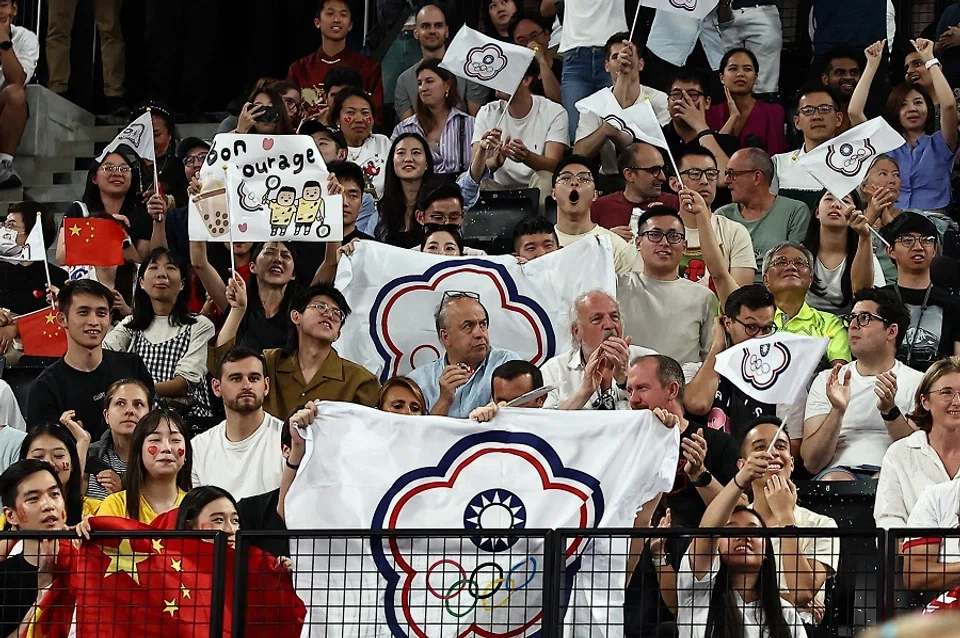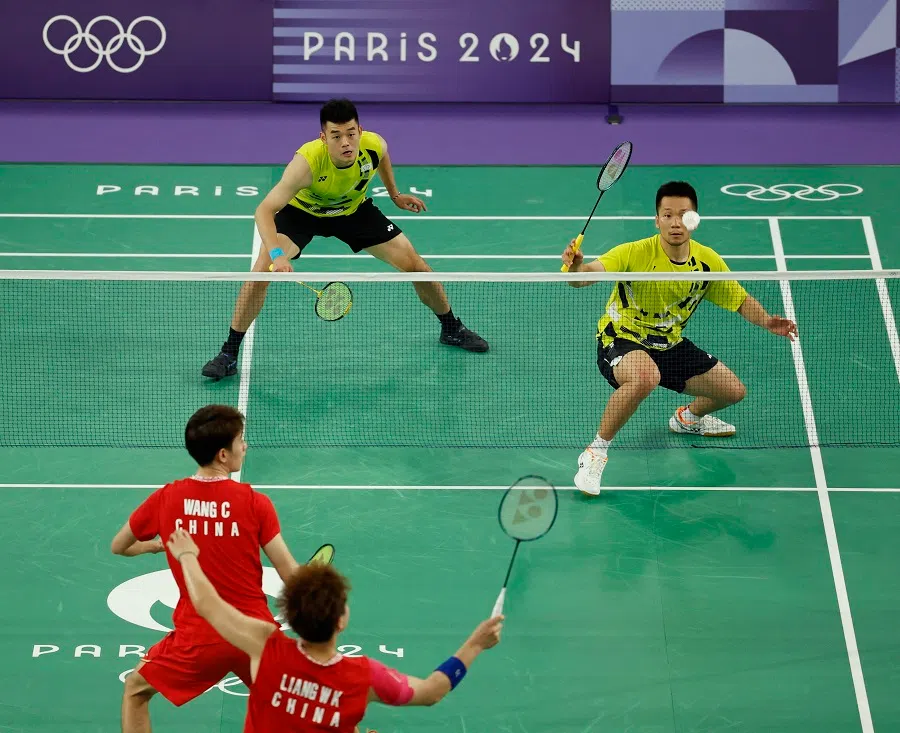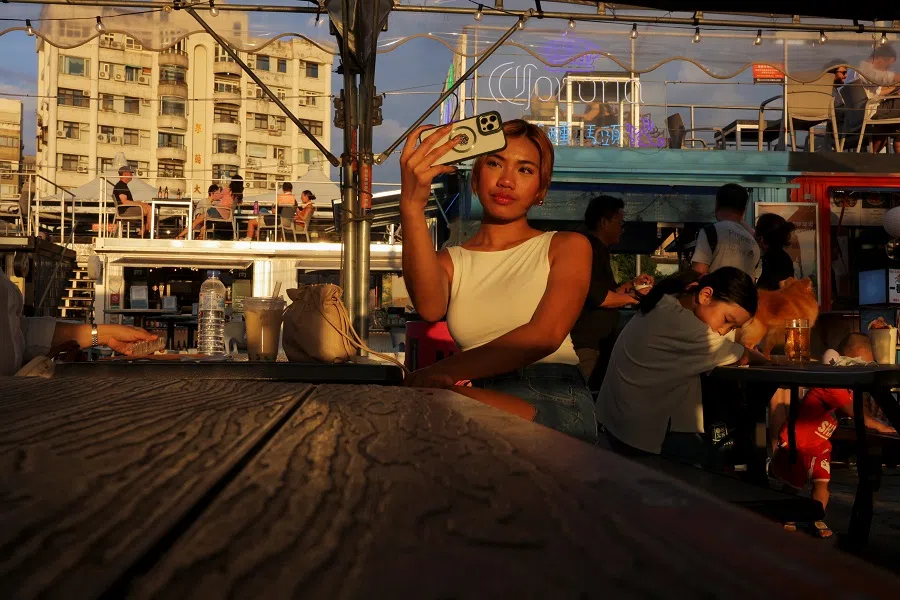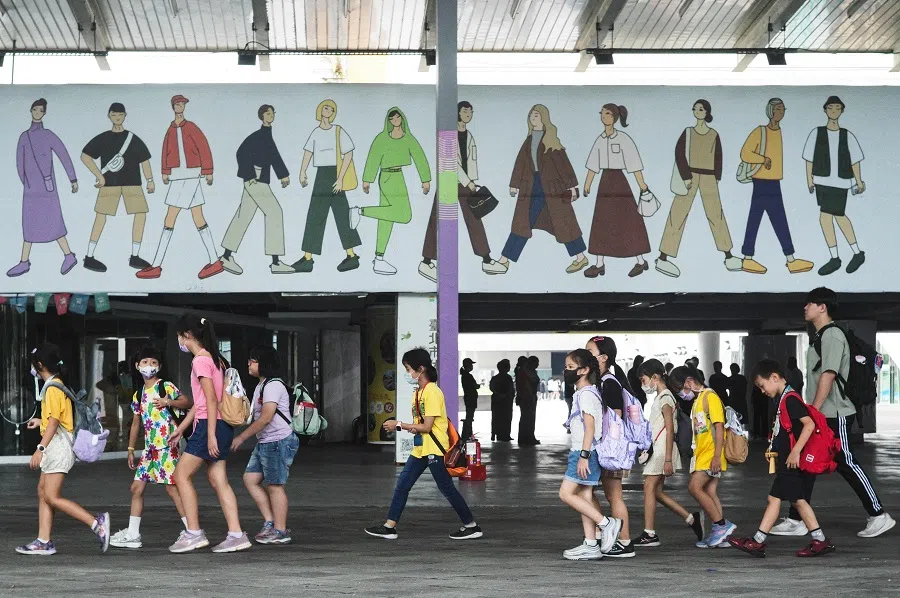Taiwanese youths getting more antagonistic towards mainland China?
During the Olympics, US academic Wu Guo sees examples of Taiwanese spectators and netizens appealing to a rising self-assertion of being “Taiwanese” among young people. He asks: would a sense of Taiwanese smugness, hostility and assertiveness towards mainland China worsen cross-strait relations?

I have long been convinced that the Olympic Games today are more divisive than they are uniting, and not only that, they are inherently politicised and commercialised. Social media exacerbates the situation by amplifying and sometimes distorting messages, acts and images that could cause deep fractures among various social groups.
False impressions
Unfortunately, this year we witnessed bickering among the Chinese across the Taiwan Strait, and the Olympic Games in Paris proved, once again, not to be instrumental in fostering unity. Instead, it cast long shadows on already troubled cross-strait relations. I am not a big fan of sports, but in my memory, with the international consensus reached regarding Taiwan’s participation in sports events, the name would show up as “Chinese Taipei” with the flag featuring the International Olympic Committee (IOC) logo. I do not recall unpleasant confrontations regarding the representation of Taiwan teams in the past.
However, social media that I follow daily shows a radical change this time. On Facebook, I noticed some Taiwanese users artificially changing the IOC flag to the “national flag” of the old Republic of China using modern technology. By doing this, the account owners and viewers acquired a false sense that their “national flag” of “blue sky, white sun, and red land” was hoisted in Paris. This technically simple trick helped the owners win plaudits among their followers by appealing to the rising self-assertion of being “Taiwanese” among many young people.

However, the act of faking the flag reminded me of past behaviours by some Taiwanese who altered their passports with stickers to make them look like “Taiwan” passports. Additionally, a Taiwanese public figure fabricated a story claiming that high-speed trains in mainland China had no backrests. As a passenger, I observed firsthand that Taiwan’s high-speed trains allow passengers without seats to stand.
... the conflict surrounding the signs in Paris and the modification of the IOC flag on the internet both demonstrate a more pessimistic vision of cross-strait relations because Taiwan’s new generation is becoming more assertive and even aggressive.
Taiwanese youth seem more aggressive and assertive
For me, however, this change of the correct image of the flag reflects a deep-seated anxiety among Taiwan’s people today to be visible globally and to be recognised by the world as a “country” with its own flag. After all, the Olympic Games are a rare opportunity for Taiwanese representatives, athletes in this case, to be seen.
More troublingly, in the stadium, some spectators from Taiwan attempted to display signs usually associated with the pro-independence forces on the island. This was undoubtedly a provocative act with a politicised agenda. The planners knew well that the pro-independence forces would have very few opportunities to do this, given Taiwan’s international invisibility, especially during the long hiatus of cross-strait relations after the leading Democratic Progressive Party (DPP) eschewed past consensus about “one China”.
Overall, I believe that the conflict surrounding the signs in Paris and the modification of the IOC flag on the internet both demonstrate a more pessimistic vision of cross-strait relations because Taiwan’s new generation is becoming more assertive and even aggressive.

After the two badminton players from Chinese Taipei won the gold medal in the doubles match against a People’s Republic of China team, the conflict, unfortunately entangled with the radical youth subculture in both mainland China and Taiwan, worsened. “Chinese Taipei’s” victory was interpreted as a political triumph of “Taiwan” against “China” among many young Taiwanese radicals and was applauded as such. Taiwanese leaders also did not miss this golden opportunity to send congratulatory telegrams, largely exploiting the moment to boost Taiwanese awareness and sense of identity. For them, it was a victory for “Taiwan”.
I feel that most mainlanders harbour positive feelings towards Taiwan, and more than one friend of mine from mainland China has told me that “real Chinese culture” can only be found in Taiwan.
Mainland Chinese actually friendly towards Taiwanese
I never think that young mainland Chinese are all radical “little pinks” (young, nationalistic keyboard warriors) who want to take over the island as soon as possible and by force. After interacting with many mainland Chinese and Taiwanese people during my trips to the mainland and four trips to Taiwan in ten years, which covered many cities and even small towns, I feel that most mainlanders harbour positive feelings towards Taiwan, and more than one friend of mine from mainland China has told me that “real Chinese culture” can only be found in Taiwan.
Many of them had visited Taiwan before the individual tours were called off by the Chinese government. Tour operators and drivers I met in Taiwan all thought the disconnection across the strait was sad, because they not only lost an important source of income but also a channel of communication.
... if friendly applauding and congratulations from the mainland are rejected because they are not deemed as “true love”, then what are you looking for?
On Facebook, when one Taiwan commentator kindly mentioned that there were also mainlanders who celebrated Chinese Taipei’s victory, I affirmed it by saying that many mainlanders entertain good faith towards Taiwan, so it was not strange.
Another Taiwanese commentator, who seemed to be in her twenties, retorted: “But that’s not ‘love Taiwan’ (但那不是爱台湾).” I fought back: if friendly applauding and congratulations from the mainland are rejected because they are not deemed as “true love”, then what are you looking for? How can mainlanders prove they truly love Taiwan? I myself have held back from airing complaints against Taiwan’s chaotic and dangerous traffic, lack of law enforcement against illegal parking in Pingtung, shortage of facilities to assist with crossing streets in Tainan and the failure to show train numbers even on the screen of the Taipei train station platforms.

I would also say that except for a few top-notch hotel restaurants, the overall restaurant service in Taiwan, including the interiors, service, and quality of cooking, was not on par with mainland Chinese restaurants in cities of even 25 years ago. And I wouldn’t call night market street food, which I tasted four times in various locations of Taipei, “cuisine” by any means.
I do not think rejecting good faith from the mainland and holding too high a standard for “true love” from mainlanders is a healthy and constructive attitude...
Holding too high a standard for ‘true love’?
I understand that Taiwan’s people want to secure their place in the world despite international political isolation and that they are becoming increasingly assertive and even antagonistic towards the mainland for a variety of reasons, one being lacking in-person contact and experiences.
I personally think highly of Taiwan’s medical service, which for me was far superior to the US in terms of efficiency and cost. But I do not think rejecting good faith from the mainland and holding too high a standard for “true love” from mainlanders is a healthy and constructive attitude, even if self-deceiving by faking the flag could be considered a little fun, though childish.
The argument I got involved in was another expression of desperation and cynicism, yet mistakenly directed towards ordinary mainland individuals, and it was entirely unnecessary. As a matter of fact, multiple times on social media I could feel a Taiwanese smugness, hostility and assertiveness towards mainland China that dismisses and scorns everything there. I was not alone. Some older generations of Taiwanese friends who had experiences living and travelling in the mainland and even working and living for more than 20 years in Europe all told me that returning to Taiwan, they also felt that Taiwanese have the tendency of being too narcissistic without knowing the real world outside of the island.





![[Big read] When the Arctic opens, what happens to Singapore?](https://cassette.sphdigital.com.sg/image/thinkchina/da65edebca34645c711c55e83e9877109b3c53847ebb1305573974651df1d13a)